Deepen your practice and learn with us. View complimentary on-demand webinars from Collaborative Classroom anytime, at your convenience.
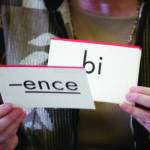
How Is That MTSS Working for You? The Role of Intensification and Alignment in Reaching All Readers
In this recorded webinar, special education expert Genevieve Thomas guides us through evidence-based frameworks that inform instructional decisions for students who do not respond to standard reading interventions. This conversation specifically focuses on the alignment between Tier II and Tier III instruction.

Building Educators’ Sense of Belonging: How a Caring Adult Community Ensures a Caring School Community
In this recorded webinar, our panel of leaders share how they are building a sense of belonging for their staff by prioritizing the adult community within their vision for school culture.
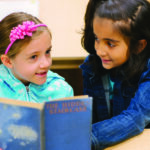
A “Walk to Read” Case Study: Breaking Free of Whole-Class Foundational Skills Instruction
To meet students’ varied needs and ensure that every student learns to read, Nystrom Elementary in Richmond, CA has implemented a schoolwide "Walk to Read" model, providing differentiated foundational skills instruction for TK–6. Hear about the significant growth that Nystrom Elementary has experienced on school-based assessments and district benchmarks.
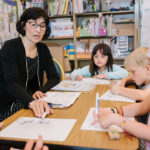
Foundational Skills Instruction: Why Differentiated Learning and Small-Group Instruction Are Key to Student Success
In this recorded webinar, we explore why one size does not fit all when it comes to effective foundational skills instruction. Hear from our panel of literacy experts, including author Linda Diamond, about the essential elements of small-group reading instruction and mastery learning.

Finding Inspiration in Independence with Zaretta Hammond
Noted author and educator Zaretta Hammond speaks about the importance of developing students as primary actors in their learning. In this 60-minute webinar, she shares practical strategies to help develop a classroom of independent learners.

Getting Older Striving Readers Back on Track: Effective Foundational Skills Instruction for Grades 6-12
In this recording, we discuss evidence-based practices to support older struggling readers. Learn how to accelerate reading growth and restore confidence by delivering age-appropriate instruction that considers the social and emotional needs of students.
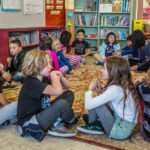
Implementing SEL: Finding Success, Avoiding Setbacks
In this webinar, AASA Lead Superintendent for SEL Dr. Sheldon Berman and Corvallis School District leaders share insights about factors that facilitate deep integration of SEL. Dr. Berman also discusses other case studies from his new book Implementing Social-Emotional Learning: Insights from School Districts’ Successes and Setbacks.

Understanding the Role of Text in Foundational Skills Instruction: Essentials of K-2 Reading Practice
In this webinar recording, you will learn features of decodable text that support the transfer of reading skills to more complex texts, approaches that support students as they apply their newly learned skills in decodable texts, the importance of implementing decodable text as a temporary scaffold, and considerations for ensuring students read a diverse range of materials.

Building and Maintaining a Caring School Community: Tips for Building a Foundation for Year-Long Success
A caring classroom community helps develop a student's sense of autonomy, belonging, and competency. How do we start the school year strong and maintain it throughout the school year? In this recorded webinar, you will hear from a panel of SEL experts and school leaders who are leading this important work.

The Writing Rope by Joan Sedita: A Framework for Explicit Writing Instruction in All Subjects
Author Joan Sedita concludes a five-part self-paced book study of her bestselling book, The Writing Rope: A Framework for Explicit Writing Instruction in All Subjects. In this webinar, Joan presents an overview of the model, discusses her experience teaching students and training teachers, and responds to thoughtful questions posed by book study participants.

Research-Based Writing Instruction: Five Essential Features
In this recording, Dr. Steve Graham, the lead author of the IES Practice Guide on Teaching Elementary School Students to be Effective Writers, draws on the research base to discuss the essential features of effective writing instruction for grades K–5.

Accelerative Foundational Skills Instruction for Older Readers
Learn about age-appropriate instruction for students in upper elementary, middle, and high school. This professional learning webinar unpacks the research, focusing on considerations for remediating the reading skills of older students, explores concrete examples of structured literacy lessons, and discusses effective, evidence-based approaches for helping older students master and apply critical reading skills.

Texas Literacy Leaders Close the Achievement Gap
Hear from a panel of literacy leaders in Texas about their experience accelerating students’ foundational skills using SIPPS®. Learn what resources, implementation structures, and varying models, including MTSS, tutoring, and professional development, led to growth in student achievement.

Choosing Curriculum that Supports the Science of Reading: What Administrators Need to Know
In this webinar, Linda Diamond, co-founder of CORE®, shares practical strategies for evaluating and choosing appropriate instructional materials that support the science of reading.
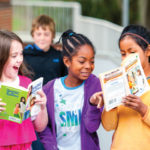
Supporting Reading Success in Summer School
Summer school is an opportunity for our striving readers to build competence, confidence, and independence. Hear from schools and districts from Arizona, Colorado, and Florida who have improved their students’ foundational skills knowledge using SIPPS® during summer school.
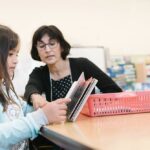
Evaluating the Impact of the SIPPS Program at Pasco County Schools, Florida
Pasco County Schools is the 10th largest school district in Florida. Hear from district leaders as they discuss their implementation journey with the SIPPS® program. Dr. Marisa Ramirez Stukey will also share a summary of the data and conclusions from a recent research conducted at the district.
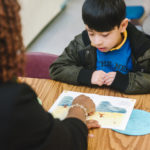
Defying the NAEP Trend: Lessons from Districts with Reading Growth Gains
While poor NAEP scores have captured national attention, some districts have made gains in reading achievement during this challenging time. Learn from three diverse school districts located across the country and their strategies for accelerating students’ foundational skills over the last few years using the SIPPS® program.
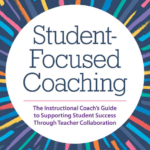
Student-Focused Coaching, with Jan Hasbrouck and Daryl Michel
Deepen your knowledge of student-focused coaching in this webinar conversation with authors Jan Hasbrouck, PhD, and Daryl Michel, PhD. as we delve into their new book, Student-Focused Coaching: The Instructional Coach's Guide to Supporting Student Success Through Teacher Collaboration.

The Science of Reading in Practice
In this webinar, we unpack research-based strategies for developing the skills and habits of mind that students need to become proficient and independent readers. We explore best practices for instruction that address both word recognition and language comprehension. Participants will experience lessons from the Being a Reader program designed for grades K–5.
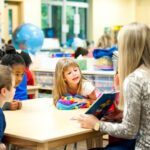
Exploring Common Misconceptions about the Science of Reading
Explore what we know about the science of reading, what common misconceptions about it occur (especially in comprehension, vocabulary, and text choice), and how we can work together to enact the science in our classrooms.
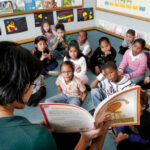
Where the Science of Learning Meets the Science of Reading: Unpacking the Evidence
While the science of reading tells us what is essential for building a reader, the science of learning tells us the conditions that are necessary for learning to thrive and last. In this webinar, we engage in learning about the evidence base for the Science of Learning and connect those principles to the components of Scarborough's Reading Rope.

What Literacy Leaders Need to Know to Support Teachers in Shifting to Science of Reading-Based Instruction
How can leaders ensure effective implementation of research-based practices that develop students' critical literacy skills so they become proficient readers with expanded and equitable opportunities? Watch this webinar presented by Linda Diamond, Author of the Teaching Reading Sourcebook and Co-Founder of CORE®

Demystifying Reading Assessments: The Right Assessment for the Right Purpose
This webinar explores the different types of reading assessments that support students' reading development. We focus on essential questions that reading assessments address and how we use the results to inform our instruction.

The Science of Reading and English Learners: A Roundtable Discussion
How does the science of reading meet the needs of English Learners? This roundtable discussion explores how to best support English Learners within a structured literacy framework.

Reimagining Professional Learning through Virtual Lesson Study
In this webinar, we learn how Pennridge School District, PA reimagined job-embedded virtual professional learning that is resulting in deep teacher reflection and leading to shifts in instruction that support student agency.

Beyond Good Intentions: Teaching with a Social, Emotional, and Cultural Lens
In this webinar, Dr. Nancy Markowitz, Founder and Executive Director of the Center for Reaching & Teaching the Whole Child and Dr. Suzanne Bouffard, Vice President of Publications at Learning Forward discuss their book Teaching with a Social, Emotional, and Cultural Lens. The discussion centers around a distinct framework for integrating the development of key skills needed for academic success and the ability to thrive into daily classroom practices.
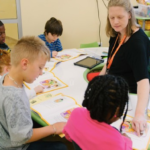
Making the Case for Acceleration
What does it mean to accelerate student learning? How does acceleration differ from remediation? In this short webinar, we do a deep dive into the approaches for accelerating all readers’ foundational reading skills through the lens of the SIPPS® K–12 curriculum.
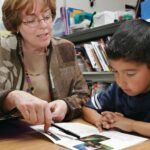
The Science of Reading: Essentials for Leaders
In this webinar, we explore models that show the alignment of instructional practices that comprise the Science of Reading. Essential elements include: systematic scope and sequence, differentiated instruction, structured lessons, explicit instructional routines, assessment-driven instruction, and cumulative learning leading to mastery.

Developing Cognitively Independent Readers and Thinkers in Grades 3–6
How can we set up our students for success in the upper-elementary grades? To thrive amid the increased academic and assessment-related demands in grades 3–6, students must develop as cognitively independent learners. But what does this mean in practice, and how do we get there? In this webinar, we explore these questions through a literacy lens with a panel of experienced upper-elementary educators.
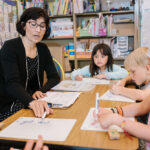
Using Data to Inform Our Response: Grouping and Instructional Decision Making in Foundational Skills Instruction
In this one-hour webinar, we discuss best practices for using data to provide responsive instruction and support the decisions we make in lesson selection, routines, and grouping, through the lens of the K–12 foundational skills program SIPPS®.

Reimagining Discipline with a Teaching-and-Learning Approach: A Roundtable Discussion
During this time of remote and hybrid instruction, virtual classroom management and discipline are pressing priorities for many educators. Some schools have adopted the same reward-and-punishment systems that they used during in-person instruction. Others are taking a teaching-and-learning approach to discipline. In this webinar, we hear from teachers and administrators who are implementing a reimagined approach to discipline and share practical ways in which their schools are supporting students.
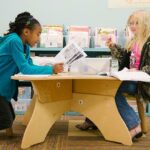
Fostering Independence in Upper-Elementary Readers: Launching and Sustaining Small-Group Instruction, Including Book Clubs
All students deserve access to the richness, instructional rigor, and empowerment that are part of student-led book clubs. But too often, only our highest-performing readers get to participate in this type of small-group instruction. In this webinar, join special guest Julie Wright, author of What Are You Grouping For? and Collaborative Classroom, discuss best practices for fostering the independence necessary to give all students access to small-group learning opportunities, through Collaborative Classroom Book Clubs curriculum for grades 3–6.

Our Journey to Improve Engagement and Rigor Through Writing: Burgess Elementary School’s Journey
Is your writing instruction rigorous, with your students actively engaged in the work of making meaning as they write? And what role does social and emotional learning (SEL) play in successful writing instruction? In this webinar, we explore these questions with Principal Samantha Coy of Burgess Elementary School and Corwin author John Antonetti. Learn how these education leaders have partnered to bring thoughtful, student-centered writing instruction to Burgess Elementary through the implementation of the Being a Writer curriculum.